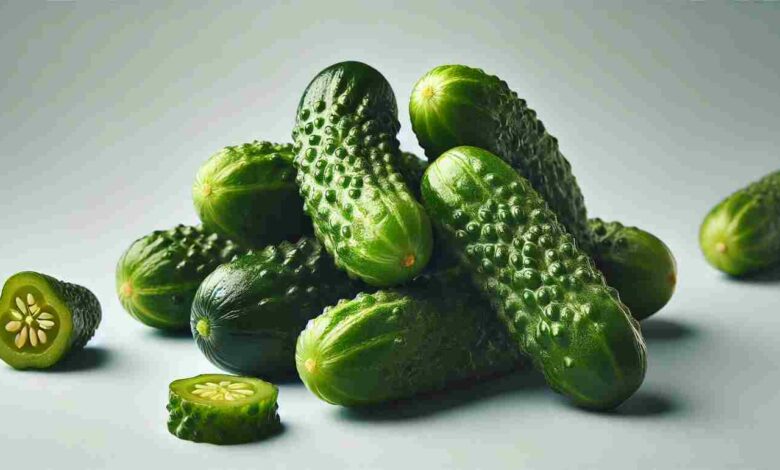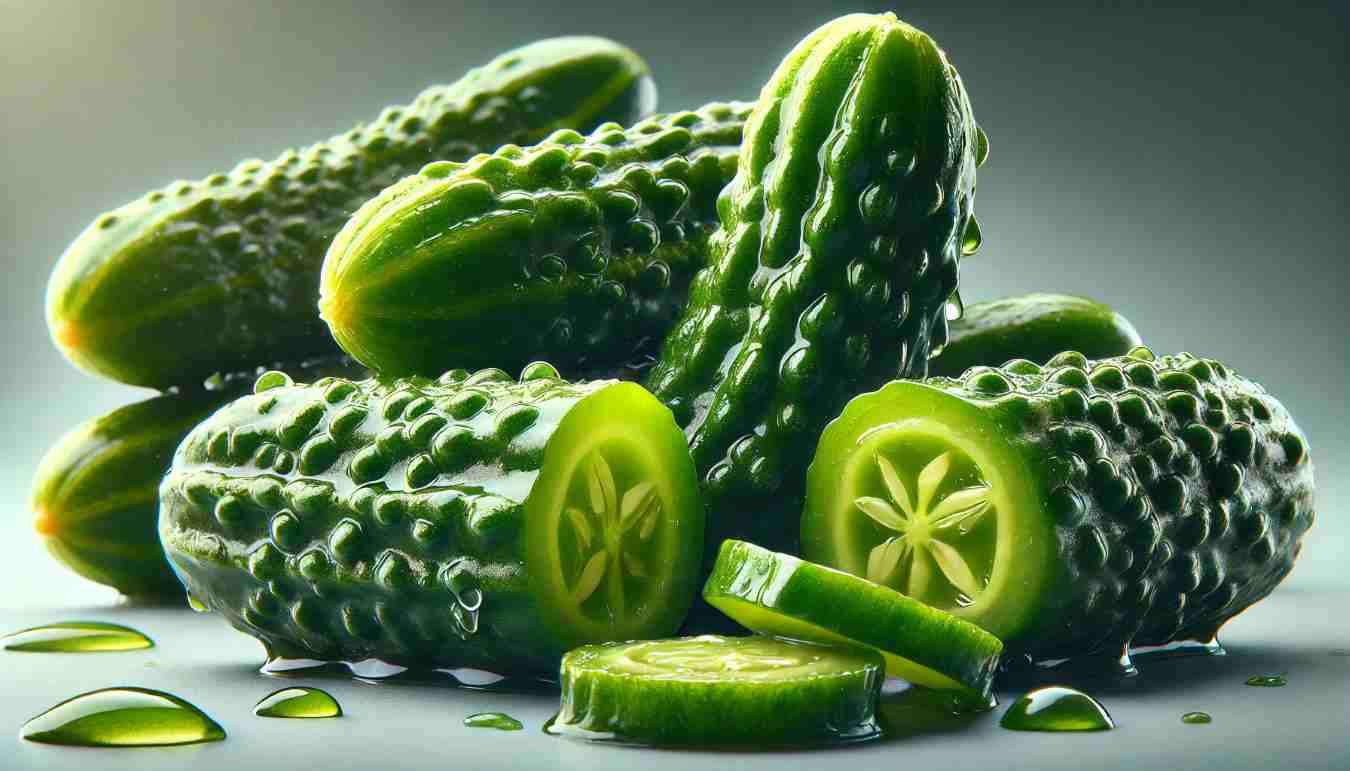Gherkins: Uses, Benefits, and How to Store Them

Gherkins, also known as pickled cucumbers, are a popular ingredient around the world. They add a unique tangy flavor to dishes and come with various health benefits. In this article, we’ll explore how gherkins are used in everyday cooking, the potential health advantages they offer, and tips on how to properly store them for maximum freshness.
What Are Gherkins?
Gherkins are tiny baby cucumbers which are picked early, as they hold up very well to pickling. They are frequently mistaken for pickles, but what makes them different is that they are made of broader and chunkier cut and how they were preserved. According to tradition, gherkins are prepared in a vinegar or brine preservation solution that carries with it its sour and tangy flavor.
Culinary Uses of Gherkins
There are many means of how you can enjoy your own gherkins. One of the major points is as a crispy inclusion inside sandwiches, burgers and even to salads. A slightly sweet, mildly tangy taste that goes well when served with grilled meats and meatloaf style hearty dishes. Commonly consumed gherkin are used as starters or even included in cold platters with cheeses and typical cold cuts.
Likewise, you can also cut gherkins up into dice and blend in potato salads or use them in sauces à la tartar sauce for that extra zest. Others might like to munch on them right out of the jar. People use them in salads and other meal items ranging from snacks to dips due to their versatility.
Health Benefits of Gherkins
Despite their small size, gherkin pack quite a punch when it comes to nutrition. Here are some key health benefits:
Low in Calories: A great snack option for those who are trying to maintain their calorie intake! Gherkins enhance flavor without adding significant calories.
Rich in Probiotics: Fermented gherkins are packed with probiotics, which are gut-friendly bacteria that promote a healthy digestive system by balancing beneficial microorganisms in the gut.
High in Vitamin K: Gherkins are rich in Vitamin K, a key nutrient that supports bone health and aids in blood clotting. Regular consumption of gherkin helps you meet your daily Vitamin K needs.
Antioxidant Potential: Gherkin are a good source of antioxidants, namely Vitamin C, which can help to neutralize free radicals in the body and potentially reduce inflammation. This will lead to healthier skin and dewrinkling effects.
Aids in Digestion: As rich in fiber, gherkins keep your digestive system on the right track to help avoid constipation and maintain a healthy gastrointestinal tract.
May Offer Mental Health Benefits: The probiotics present in fermented gherkins may offer mental health benefits, such as reducing symptoms of anxiety and depression although more research is necessary on this point.

Risks and Considerations
Although there are numerous positive aspects of gherkins, consider these points:
High in Sodium: Many commercial gherkins have a high sodium content from the pickling process. Too much sodium can increase blood pressure and contribute to cardiovascular disease, so eat dill pickles in moderation.
Possible Allergic Reactions: People that are allergic to cucumbers or cucurbitaceae plants are possibly sensitive to gherkins. They can produce symptoms like itching, swelling, or trouble breathing and yet are a type of protein from our own bodies.
How to Store
Proper storage of gherkins makes them tasteless longer. Some advice on storage:
Unopened Jars: Gherkins can remain good for up to two years if stored in a cool, dry place. Always check the lid of the jar when you buy it in order to stay fresh.
Opened Jars: Refrigerate jars of opened gherkin. Tightly seal the lid to help them maintain their crispness and prevent them from going bad. Once opened, they usually last for 1-2 months.
Bonus Tip: Ensure you always use clean utensils to remove gherkins from the jar, otherwise bacteria will form, and they won’t last as long. Others go as far as to put a clean, folde
How to Enjoy Leftover Gherkins
Should you have gherkin left over, there are many different ways of preparing them in a creative manner. Chop them up and mix in with egg salad (which can be made from last night’s overcooked breakfast eggs), throw into wraps for added crunch or blend into a sauce (think relish style) to accompany cold meats.
Additionally, gherkins are perfect for charcuterie boards or putting on top of hot dogs and burgers. A nice way of spicing up your meals is to make homemade pickled gherkins yourself if you feel adventurous. You can make sure that your gherkin are not as salty or as spicy as the store-bought ones and you control the nutrients!
The Bottom Line
In addition to being a delightfully zesty snack, gherkins commonly contain polyphenolics. They have various uses in the kitchen, from adding crunch to sandwiches and salads to simply enjoying them as a snack on their own. Due to their health benefits of being low in calories, packed with probiotics, and rich in Vitamin K, they are a great choice. However, be mindful of their sodium content. With proper storage, gherkin can be preserved for long periods, ensuring you always have a special and healthy option at hand.





